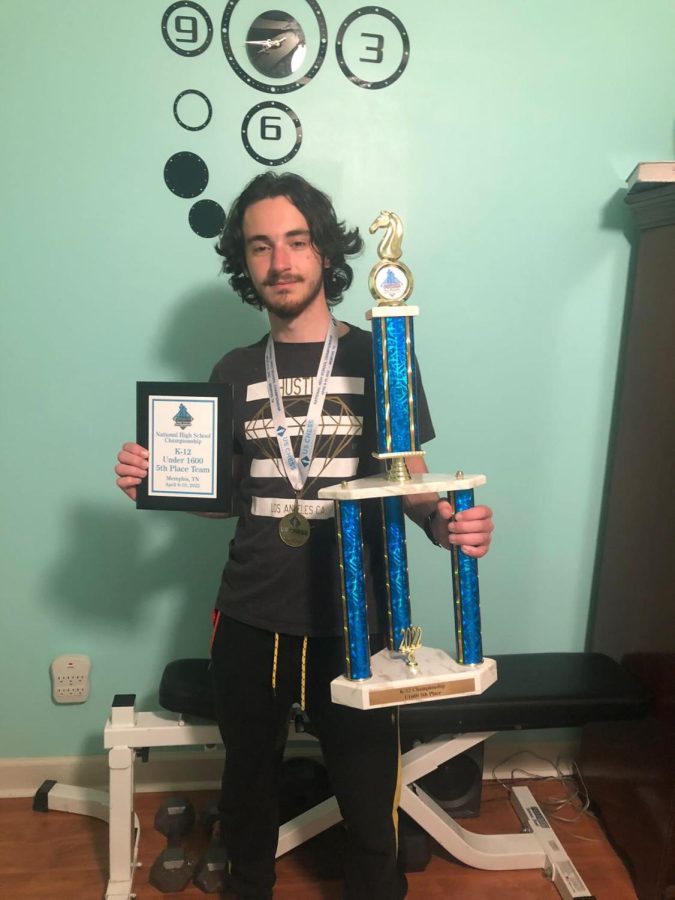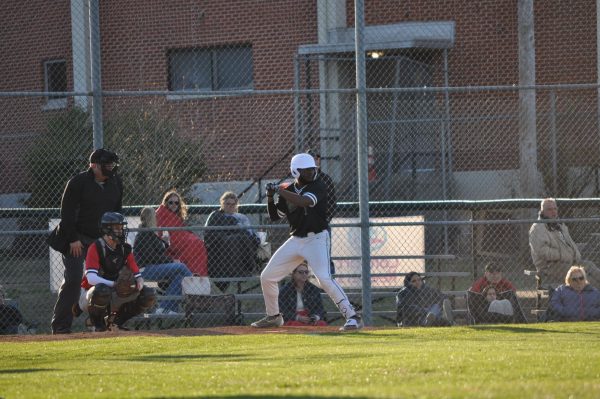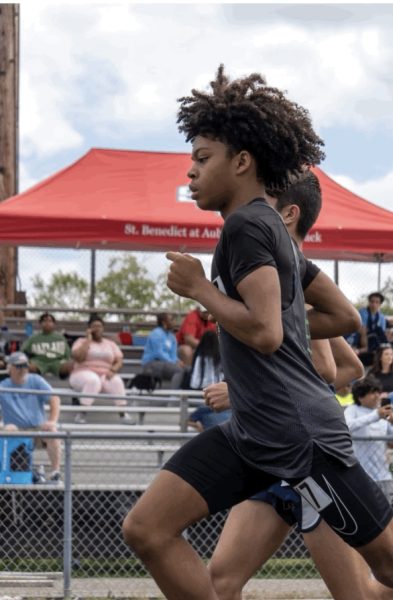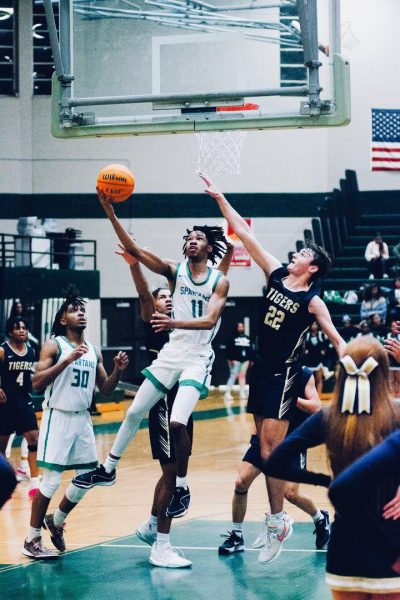Rook takes queen, but king stands tall
NIMA AFLAKI//USED WITH PERMISSION
Nima Aflaki (12) holds his trophy for winning the Tennessee State Amateur Championship. Aflaki was undefeated throughout the tournament.
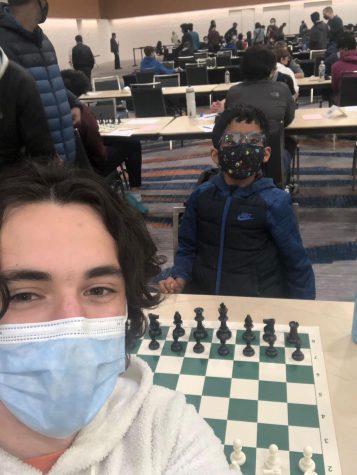
White Pawn to E3. Black Knight to D6. White Bishop to B4. Checkmate. After five arduous hours, Nima Aflaki (12), Tenn. amateur state champion, stands up, victorious.
Chess is a strategic game of two players competing with various pieces on a checkered board. It is a battle of wit to achieve victory, a player has to put the enemy king into checkmate. Checkmate is when the king piece can not escape being taken. Professional chess games can last up to six hours; with no breaks during the game, a lot of mental strain is caused.
“It’s a psychological game to an extent,” Aflaki said. “It’s just fighting with your minds: who can think better?”
After the dissolution of the chess club, chess players throughout the school no longer had the relaxed environment to practice and play. However, some players remained dedicated and continued honing their craft.
“The fight – there’s something I like about that,” Aflaki said. “I love [the] chaos.”
Many of the dedicated chess players started at a young age. As their minds developed, so did their techniques and strategies.
“[I began with] the chess club in elementary school,” Jonathan Mehrotra (11) said. “I would go there every day after school and play for two hours. That’s where I saw the most improvement.”
Aflaki and Mehrotra stay dedicated by consistently playing chess and learning new tactics. Through countless games and endless training, these players are always learning how to adapt to challenges and refine different playstyles.
“[After I started chess], I enjoyed it,” Aflaki said. “I picked it up pretty quickly and that initial progress just dove me into the game. I remember last year, I made a pact to myself that I am not only going to play chess, I am going to make some money out of it.”
From playing against online opponents and watching YouTube videos, these players continued improving despite most matches resulting in losses.
“I learned through a thousand losses,” Aflaki said. “All of my friends were naturally gifted, and one of them was literally a child prodigy. And I would play them for two hours every day, five days a week. I would lose 80% of the games, but every time I lost I would learn something.”
A chess tournament is a series of chess games played competitively to determine a winning individual or team, who is often rewarded with a cash prize. Naturally, players must hold experience and expertise to succeed, but some players have traditions that they feel increase their chances of winning.
“I have a lucky pair of shoes I wear to chess tournaments,” Mehrotra said. “I have won some city championships with those shoes, so I like to wear those before tough games.”
Preparation is key to winning matches against skilled opponents. As players mentally formulate a strategy to win and defend their pieces, they simultaneously must predict their opponent’s moves.
“I would study my opponent’s games,” Aflaki said. “I would sit and go through fifty of his games to see if there were any holes or weaknesses I could attack. And of course, I would assume he would do that to me too. It’s this little cat and mouse game.”
Despite the hours of studying opponents or tactical training, there is no certainty in the game. Whether opponents make an unexpected move or the pressure affects one’s focus, players need the skill of improvisation.
“I could study him,” Aflaki said. “He could have 100 games where he starts with one E4, and then he comes and places D4. Once the clock starts running, you’re on your own.”
Some tournaments can be four or five hours long, leaving players mentally exhausted. Additionally, players are given a time limit to make their moves, so how each player deals with the stress of the clock in the last few moments of the game can be the difference between a victory and a loss.
“The fate of a six-hour game is resulted on your ability to make the next twenty moves in the next five seconds accurately,” Aflaki said. “I kid you not, there was a game where I played perfectly for the first three hours. I made one mistake with five seconds on the clock. I lost the game on the spot.”
Aggressive chess players look for threats rather than caring for their position and their chess pieces.
“I am a very wild player,” Aflaki said. “I want to fight, and I want to beat you, and I want to humiliate you. It’s a high-risk, high-reward playstyle. I like to try to outplay you in 10-15 moves.”
Meanwhile, defensive chess players look for positioning. If the opponent can not attack you, it is hard to lose.
“I am a very solid positional player,” Mehrotra said. “I don’t like to play super attacking and aggressive lines. I like to play slow, kind of quiet games where I can find the opponent’s weakness and exploit it.”
Often associated with intelligence and concentration, chess is a mental sport that improves decision-making, problem-solving and memory.
“If I am playing chess three or four hours a day, I am constantly training myself to think ahead,” Aflaki said. “So now in real life, anytime I say something or act, I am always conscious of how it will play out. It’s really beneficial though, especially as a leader. If you have people you need to take care of or want to help people, you can frame your words and actions to have a bigger impact.”
Your donation will support the student journalists of White Station High School. Your contribution will allow us to purchase equipment and cover our annual website hosting costs.




























